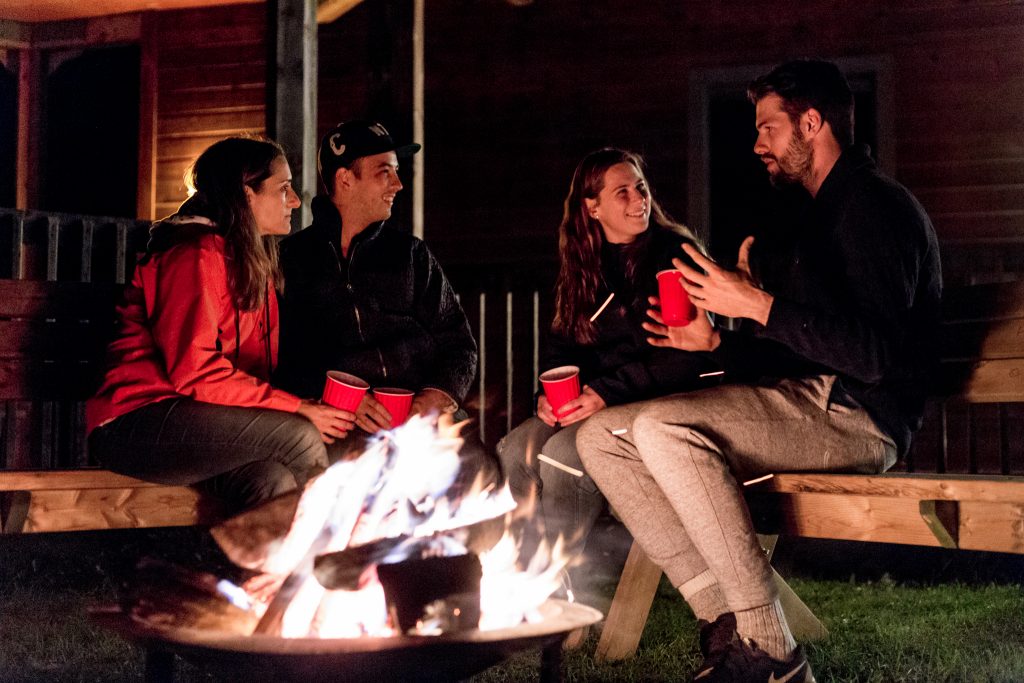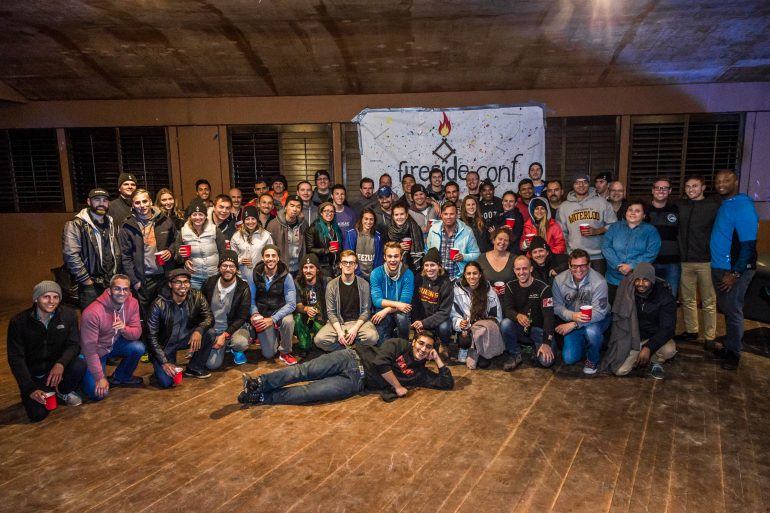What happens when you bring 80 CEOs, CTOs, devs, and tech media together to a summer camp 45 minutes away from Bancroft, Ontario, give them unlimited food and booze but take away their cellphone reception for three days?
This weekend, Daniel Levine and Steven Pulver put this question to the test for Fireside Conference, a retreat that brought the Toronto tech community together at Camp Walden for tech talks from speakers in the industry, in between sessions of campfires, s’mores and — for those brave enough to face the cold weekend — swimming in the lake.
“If we did this at a conference centre, it’s going to yield a different type of result. There’s no way on earth we could form this immersive community building format.”
As nobody in the camp could get signal on their phones, the event forced people to actually connect on a personal level instead of partaking in the usual “what do you do?” song and dance that we’re so used to at regular tech meetups.
The irony of a Wi-Fi-less tech conference is not lost on Pulver and Levine. “If we did this at a conference centre, it’s going to yield a different type of result,” said Pulver. “There’s no way on earth we could form this immersive community building format.”
Levine agreed that the venue was the most important aspect of making the event more community-focused than regular conferences. “Camp Walden is second-to-none as the ideal place to allow everyone to disconnect and form meaningful relationships,” he said. “It certainly helps that there’s no cell reception — guests can focus on forming real human-to-human connection.”

Saturday’s talks were wide-ranging across industries and topics, from marketing to millennials to discussions about how long people really have to work to be successful, with keynotes from Steve Tam of Indiegogo and tech journalist and angel investor David Sax. The intimate atmosphere of the speeches meant that audience members could easily chime in and add to the discussion, instead of being passive listeners.
Danielle Faber and Claire Owens from 88 Creative talked about how their latest self-promotion initiative, agencyorporn.com, brought a lot of awareness of the brand even though it wasn’t a traditional advertising method or experience. The company got the idea of doing unique self-promotion campaigns after creating Missing Rob Ford posters that were posted across the city, only to have it be featured on Jimmy Kimmel.
“I think the community in general needs an injection of something different. Conferences are the same, meetups are the same.”
– Steven Pulver
Even though agencyorporn.com didn’t have a huge, imposing label advertising 88 Creative, it still brought awareness to the brand; Faber said that it showed that promotion doesn’t always have to be slapping a label on everything. “A lot of the times it’s part of the design, and when you’re doing something creative and you get exposure for it – you say look at my brand, it’s important,” Faber said. “Practice what you preach and show people who you are, and have them ask questions and make them want to know who you are.”
Tim Ray, who founded FoodScrooge (later bought by WagJag, and now operating under WagJag Grocery), and Carnivore Club, a Toronto-based operation that sends curated meats once a month to subscribers, stressed the importance of keeping a bucket list after finding one he wrote at 20 when he was 27. “My thing wasn’t to be a successful entrepreneur, I at least wanted to try,” Ray said. “You can always rebound from financial woes, but you can’t get back those years that you lost because you were afraid to take the plunge.”
Because the discussions were highly collaborative, they would often go off-topic, which isn’t to say that they weren’t enjoyed by the attendees. While Corey Herscu, of Herscu + Goldsilver, focused on crowdfunding, he also ended up touching upon the power of social media — and especially, Google Remarketing ads — to get people talking about your product, and getting them to come back. “The second you hit a website, the ad starts following you for that call to action to get you back,” Herscu said, mentioning that a company that puts $1,500 into Google can end up getting a $15,000 a week return.
While the days were dedicated to speeches, the nights were always open for hanging out and connecting. At most tech events, pizza and beer might be around to give the impression of chill informality, but there is always the understanding that everyone is just there to meet people who will benefit them in some way. But being forced to engage with the same people for two days and nights, one got the sense that everyone’s guard was down, participating in the conversation rather than waiting for their turn to talk.
“No matter what we’re doing, whether it’s sitting at a campfire or listening to a talk, it’s going to be immersive,” said Pulver. “I think the community in general needs an injection of something different. Conferences are the same, meetups are the same, and we’re trying to do things differently.”
Photos courtesy Billy Lee @makingsenses

